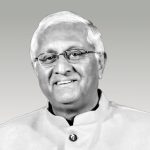Podcast Themes
Multiple perspectives on a topic that you are curious about!
Neeraj Aggarwal speaks about how he prioritized trust as a default and cultivated an optimistic mindset.
Ricardo speaks about how leadership is much more about creating the right conditions for people to flourish than pushing them in a certain direction.

Alan discusses some of the failures of Bill Campbell as an Executive and his perspectives around Bill being open to input from his Coachees. He speaks about the style of Bill’s intervention where he would not give specific suggestions but share stories and let you come up with your own conclusions.

Alan speaks about some of the things that Bill Campbell did to earn the trust of the leaders he worked with. This is all the more incredible as he worked simultaneously with leaders who were involved in an intense competition in the market-place. He also speaks about the fact that Bill had made his money and did this as a service. He alludes to Bill’s radical candour which is encapsulated in the phrase “I don’t take cash, I don’t take stock and I don’t take s**t”.

Stephen speaks about how Command and Control has evolved from being authoritarian in the Industrial age to becoming what he calls “Enlightened Command and Control” where the underlying paradigm is still about treating people as assets. He brings out the nuances of Trust and Inspire and how the paradigm is very different from enlightened command and control.

Stephen speaks about how we can lead from a paradigm of ‘Trust and Inspire’ but choose to go ‘Command and Control’ in the moment depending on the context in front of us. He goes on to speak about how the people around us would experience the same action very differently depending on the paradigm we

Stephen speaks about the Trust equation that’s often attributed to Charles Green and David Maister. He reconciles his model around Trust with the various variables in the Trust Equation (Credibility, Reliability, Intimacy and Self Orientation). He also goes on to make the distinction between being Trustworthy and Extending Trust in a relationship.

Stephen speaks about some elements to look out for before extending trust to somebody. He speaks about three things in this context 1) Job to be done 2) Risks and stakes involved 3) Credibility of the person on the other side

Stephen speaks about why Fast is Slow while Slow is Fast when it comes to matters of trust. He speaks about the upfront investment that’s often needed in running Trust and Inspire in a large organization. But he goes on to make the distinction between efficiency and effectiveness when it comes to these matters.

David speaks about how at least one of the individuals needs to take responsibility to drive the repair and restoration and rejuvenation of the relationship.

Amy speaks about the way she thinks about Psychological Safety – an environment where people feel free to take interpersonal risks. She goes on to speak about some of the pieces that people get wrong or miss. For instance, she speaks about the fact that this is not about being nice. She also teases out the nuance between developing trust with a leader and creating a climate of safety, something that people might mix.

RG speaks about the role of the leader bringing in adequate openness and a prototyping mindset to the way he or she sculpts his or her ideas. If he or she has the habit of “baking it too much” in his or her mind and then present to the others as a sales pitch it might be bad for business and for the leader’s trust quotient with the ecosystem around.